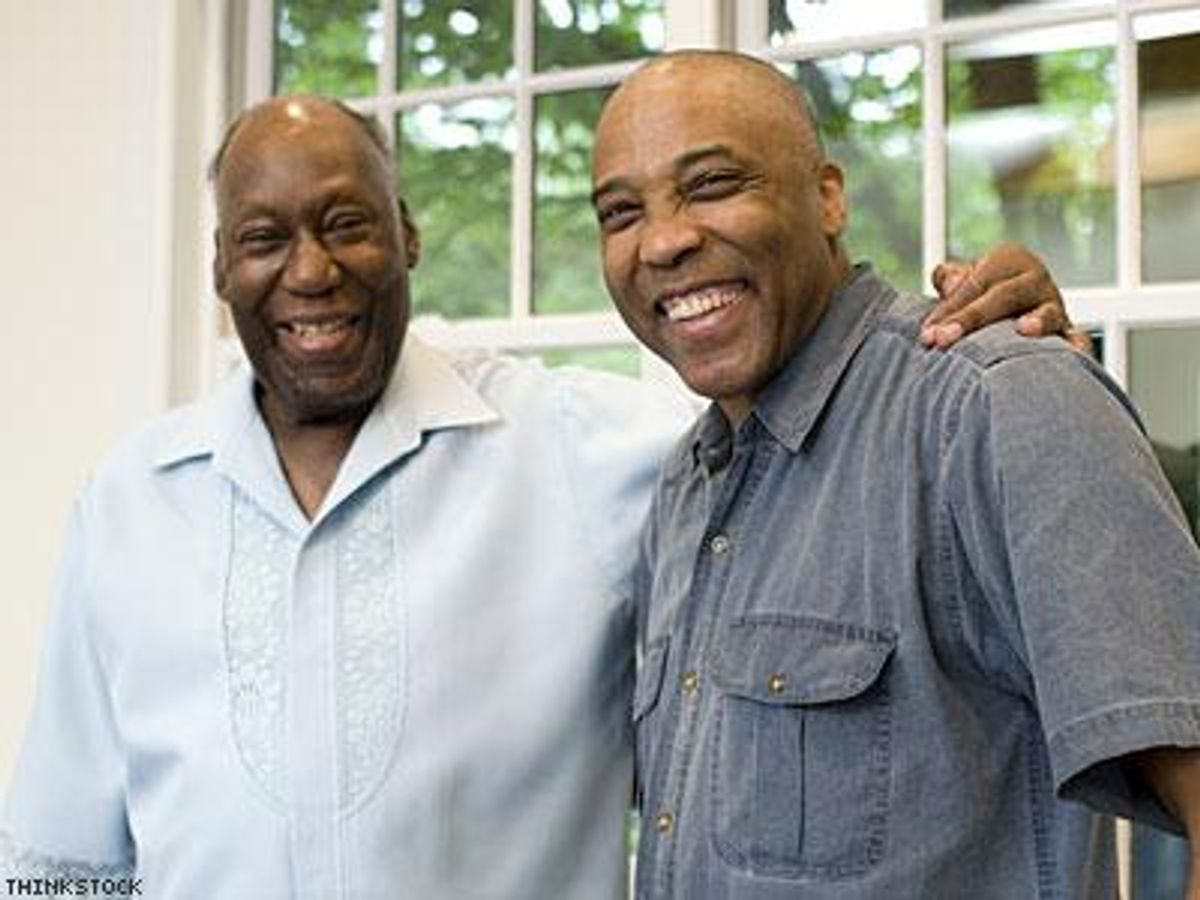All Rights reserved
By continuing to use our site, you agree to our Private Policy and Terms of Use.
Until now, LGBT people have avoided using many of the typical spousal retirement planning strategies used by our straight counterparts. Often, it was because the strategies were overly complicated by our lack of legal recognition. Meanwhile, committed couples without legal recognition were less likely to truly run their finances together, which can make it much easier to ignore retirement planning.
One benefit of marriage is that couples can share money without raising any red flags, or causing tax problems. This makes a few tax saving strategies a bit easier to accomplish. Hopefully, with new filing statuses, married same-sex couples will develop comprehensive financial planning strategies together, to help make reaching financial independence faster and easier.
Often one person may earn more than his or her spouse, or may just have disposable income. Now that spouses can freely pass money between each other, one spouse can help indirectly fund the other's retirement account. This can dramatically increase the total amount saved between the couple, and reduce their over check owed to Uncle Sam.
This may just mean one spouse giving the other money to fully fund an IRA or other retirement account. With a 401(k), there is a potential $17,500 tax deduction ($23,000 for people over 50).
Trending stories
Would you rather pay yourself? Or write a check to the government?
Biggest Deduction Version: Some of my married clients are in a situation where one spouse is highly compensated and the other is self-employed. With one couple in particular, the self-employed spouse sets up a Solo 401(k) Profit Sharing plan for their business and have been able to contribute nearly 100% of their income (the max being $52,000, or $57,500 for those 50 and older) This large of a contribution may not have been possible without the financial help of the highly compensated spouse paying some of the family's other bills. They happen to be in the 39.6% tax bracket, so this 401(k) offers a potential income tax savings of around $20,592. (Not to mention reduction in Social Security, Medicare, and Affordable Care Act taxes.) Most importantly, this will help them stay on track for their goal of early retirement. The high earning spouse will continue to max his contribution to his job's various retirement options.
Some of the best strategies for couples to reduce tax bill are the simplest. I always get looks of amazement when I pitch the idea of one spouse essentially funding the other's retirement account . It's usually followed by, "Why did we never think of that?" or "Why has no one ever told us about this before?" I really think many strategies like this have been ignored by the financial planning community.
The Spousal IRA: This is a potential new benefit to sack a few more dollars with tax benefits. Right now, a stay-at-home spouse (or spouse with little or no income) can contribute to a Roth or Traditional IRA. Contributions were limited based on incomes. A Spousal IRA may increase the amount money that can be stashed way into retirement accounts in any given year, and thereby reduce the overall tax burden of the couple.
In regard to reducing the "marriage penalty" the tax deductions for retirement contributions may now actually be more valuable. The higher your combined tax bracket, the bigger savings from your IRA contributions.
Adopting a Spouse's IRA: Currently, if one spouse passed away, the surviving spouse can adopt his or her IRA as a nontaxable event. Another option would be to roll it over into an existing IRA. Prior to this, an IRA would have to be taken out in a condensed time frame, potentially pushing other income up into dramatically higher rates, and leaving less money for the surviving spouse to live on (though keep in mind, anyone under age 59 1/2 who withdraws money may be subject to a 10 percent penalty).
Social Security: Social Security will play a major role in many Baby Boomers' retirement plans. With so many Boomers behind on retirement savings, Social Security may play a major role in their retirement income. A nonworking spouse is entitled to at least half of the benefit of a working spouse. On a similar note, a spouse with a smaller benefit can "step up" to a higher benefit if their spouse passes before them. This area of financial planning is quickly evolving, so hopefully some of these gaps and questions will be answered.
Taxation Questions: While marriage equality has been a hard fought battle, we have to take the good with the bad. Some couples may get hit with the "marriage penalty." We now have a few tools that have become easier to use to combat the increased tax burden.
Money can be a top cause of friction between spouses. Work together with the help of a trusted advisor to develop a comprehensive plan to help you both reach you specific financial goals. As your income combines and climbs, various tax planning strategies and tax deferral from retirement account may become even more valuable. This plan will hopefully help you keep more of the money you've earned, which may make some of your financial goals closer to being achieved than you thought.
DAVID RAE, CFP(r), specializes in retirement planning for the LGBT community. He lives in Los Angeles with his fiance and two Chihuahuas. Follow him on Facebook on Twitter @davidraecfp or via his website, DavidRaeFP.com.
Securities and advisory services offered through National Planning Corporation, member FINRA and SIPC, a Registered Investment Advisor. Trilogy and NPC are separate and unrelated entities. NPC does not provide tax advice. This information is general in nature and should not be construed as tax advice. Information has been obtained from sources that are deemed to be reliable but its accuracy and completeness are not guaranteed as tax laws are subject to change. Before taking any specific action, be sure to consult with your qualified tax professional.

















































































